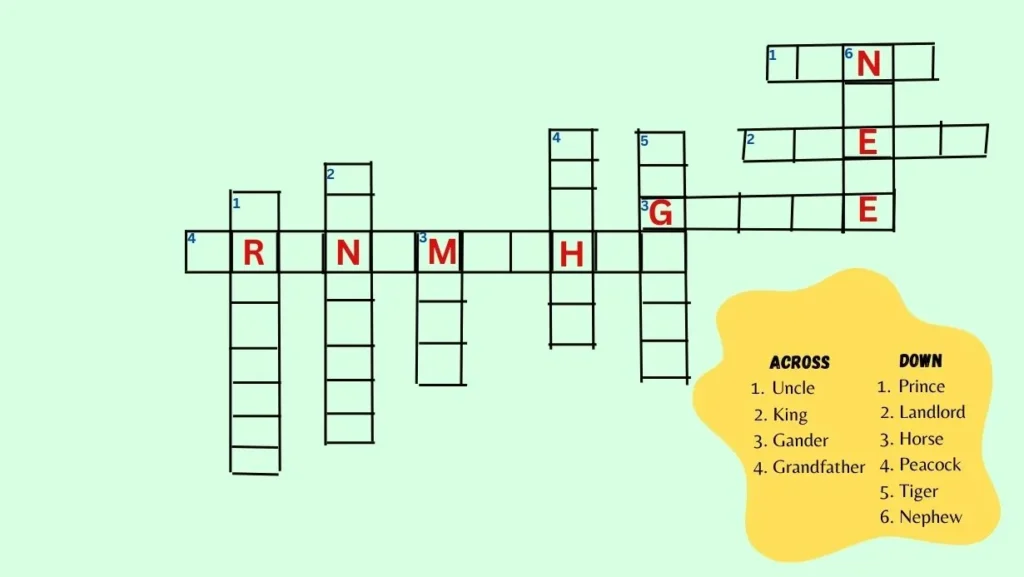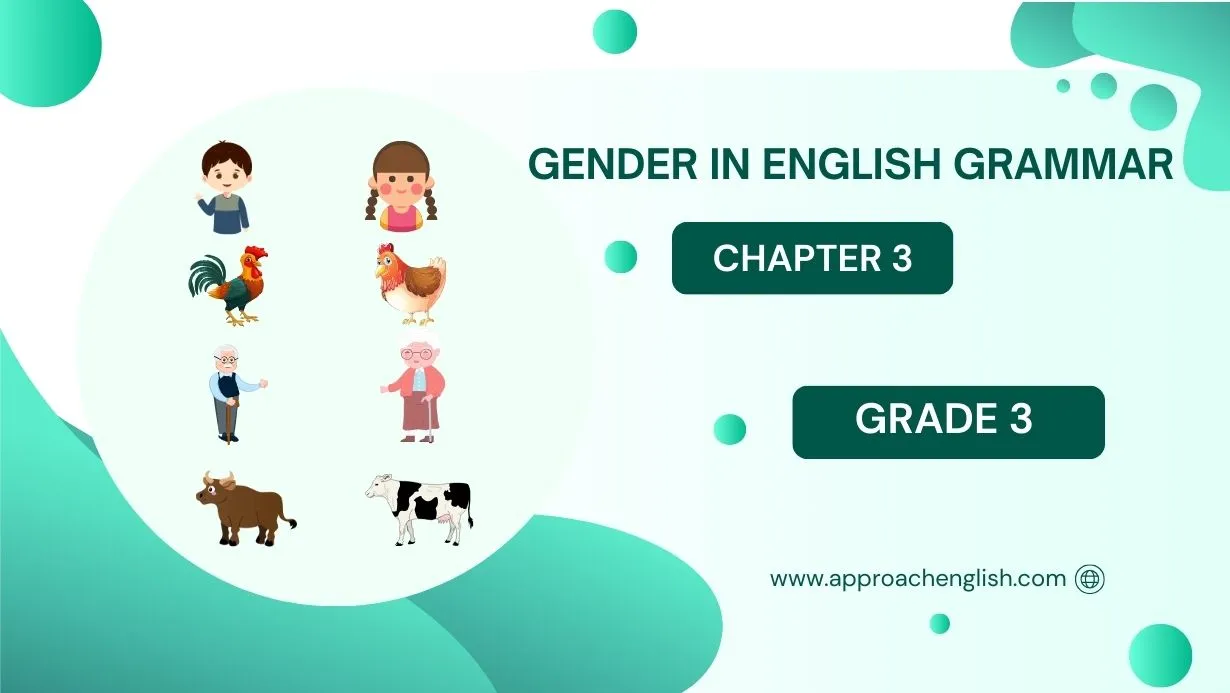Explore the “Gender in English Class 3 Worksheet with Answers: Chapter 3” with our comprehensive guide, breaking it down into manageable sections, answering FAQs, and offering valuable insights.
In-depth exploration of key concepts in “Gender in English Class 3 Worksheet with Answers: Chapter 3” provides a comprehensive understanding for students, teachers, and curious individuals, ensuring a thorough understanding of the topic.
Masculine and Feminine Gender
We use masculine nouns for males. This is called the masculine gender.
Some examples are boy, father, son, and brother.
We use feminine nouns for females. This is called the feminine gender.
Some examples are girl, mother, daughter and sister.
Other Lessons Class 3 English
There are some words that are completely different for masculine and feminine genders.
| Masculine | Feminine |
| father | mother |
| brother | sister |
| son | daughter |
| man | woman |
| boy | girl |
| husband | wife |
| uncle | aunt |
| nephew | niece |
Some animals have completely different words for masculine and feminine genders.
| Masculine | Feminine |
| bull | cow |
| rooster/cock | hen |
| horse | mare |
| drake | duck |
| gander | goose |
| fox | vixen |
We often add -ess to change from masculine to feminine.
● lion – lioness
● leopard – leopardess
● host – hostess
● count-countess
● steward – stewardess
● heir – heiress
In some cases, we need to change the spelling when we add -ess.
● tiger – tigress
● actor actress-
● waiter waitress
● master mistress
● duke – duchess
● emperor – empress
In some cases, we can change from masculine to feminine gender by changing a part of the word.
● policeman – policewoman
● landlord – landlady
● grandfather – grandmother
● peacock – peahen
Note: We no longer have to use the suffix -ess for some feminine nouns. We may use words like actor or waiter for both genders.
Gender in English Class 3: Worksheets 1
A. Write M for masculine nouns and F for feminine nouns.
1. Uncle ___________
2. tigress ___________
3. washerman ___________
4. sister ___________
5. landlord ___________
6. emperor ___________
7. airhostess ___________
8. niece ___________
Common Gender
We can use some words for both males and females. Such words are called the common gender.
Some examples are child, baby, cousin, friend, teacher, and person.
Gender in English Class 3: Worksheets 2
B. Circle the words that belong to the common gender.
1. sister, brother, child
2. father, teacher mother
3. baby, girl, boy
4. bird, hen, gander
5. fireman, firewoman, firefighter
6. salesperson, salesman, saleswoman
7. uncle, cousin, aunt
8. person, husband, wife
Gender in English Class 3: Worksheets 3
C. Write the correct words from the box.
1. Priest _______________
2. prínce _______________
3. waiter _______________
4. heir _______________
5. actor _______________
6. emperor _______________
7. host _______________
8. governor _______________
Worksheets 4
D. Complete these sentences with the correct nouns from the box.
Box: washerman, heroin, firewoman, headmaster, king, stewardess, hero, fireman, washerwoman, Steward, headmistress, queen
1. A ________ or ________looks after passengers on a plane
2. A ________ or ________ helps to put out fires.
3. A ________ or ________ washes clothes.
4. The ________ or ________ runs a school.
5. A ________ or ________ is the main character in a story.
6. A ________ or ________ rules a country.
Worksheets 5
E. Complete these sentences with the opposite gender of the underlined words.
1. My father was the host and my ________ was the ________
2. The king and the ________ have two children-a ________ and a princess.
3. The ________ and vixen live in a cave. So do a ________ and a tigress.
4. Grandfather and ________ have four children-two sons and two ________
5. A peahen is not as pretty as a ________ and the ________ is bigger than a hen.
6. My landlord is rude to salesmen, but my ________ is good to ________
Worksheets 6
F. Change the gender of the underlined words.
Tinku, the little kitten, sits on the windowsill in the warm winter sun. It is unwell. It sees a washerman walking on the road, carrying a big bundle of clothes. Grandmother’s red scarf and blue coat are in the bundle. Tinku is about to drink some warm milk from a big yellow bowl when a giant sneeze comes. The bowl flies out of the window and hits the washerman on the head. The washerman and the bundle of clothes fall on the road. The red scarf flies away in the wind. A bull runs after the scarf. A hen runs away in fright and a duck in the pond starts quacking loudly. The scarf gets stuck in a tall tree. A policeman, who was walking by, calls two men and together they bring down the scarf from the tree.
Gender in English Class 3: Worksheets 7
G. Look at this crossword puzzle. Fill it with the correct feminine nouns of the masculine nouns as clues. Some of the letters are given.

FAQs on Gender in English Class 3
Q: How do I explain gender to a 3rd-grade student?
A: Start with simple, relatable examples. Use toys, animals, and everyday objects to illustrate the concept of male and female.
Q: Why is gender-neutral language important?
A: It promotes equality and ensures that no one feels excluded based on their gender identity.
Q: Can you provide examples of gendered words in English?
A: Sure, words like “actor” and “actress” showcase gendered language. “Actor” is gender-neutral, while “actress” is female-specific.
Q: How can teachers make this chapter engaging for students?
A: Incorporate interactive activities, stories, and discussions to make learning about gender fun and relatable.
Q: Is gender education age-appropriate for 3rd graders?
A: Yes, when presented in a sensitive and age-appropriate manner, children can understand the basics of gender.
Q: Are there any resources for further learning on this topic?
A: Absolutely. There are numerous books, websites, and videos designed to help students and teachers explore gender further.







